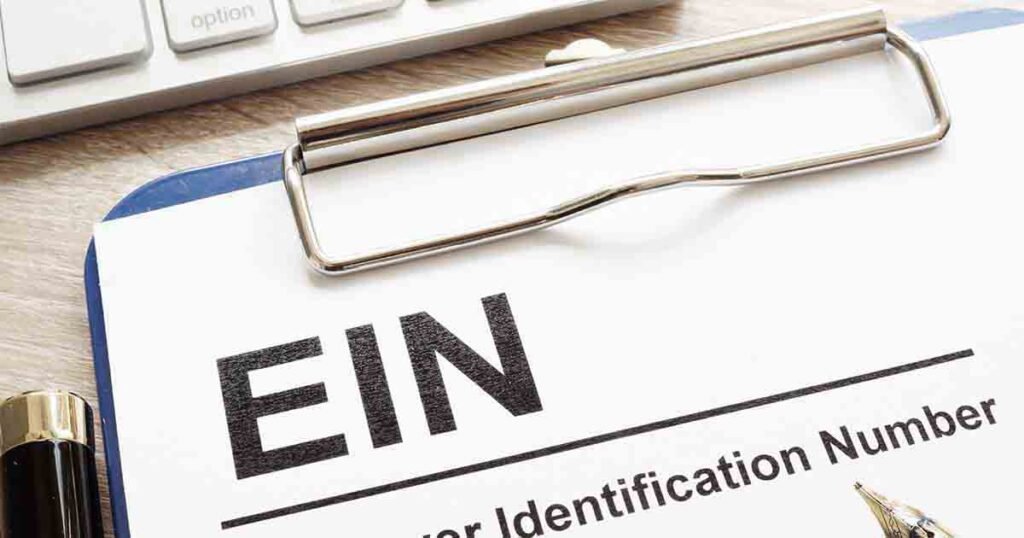Does a US LLC need an EIN?
If your single-member US LLC has employees or excise tax responsibilities, having an EIN is mandatory. Nonetheless, it could be advantageous to acquire an EIN for your US LLC even if these conditions don’t apply.
The IRS utilizes an Employer Identification Number (EIN) to distinguish between various business entities. Although the majority of Limited Liability Companies (LLCs) require an EIN, there are specific cases where exceptions apply.
In the context of tax filing, EIN usage is mandatory for LLCs with multiple members. However, sole proprietors and single-member LLCs have the option to utilize their Social Security numbers instead of obtaining an EIN.
However, numerous business proprietors opt for obtaining an EIN, even if not obligatory, due to the various tax strategies and financial benefits it presents.
Is it feasible to operate an LLC without an EIN?
All LLCs with multiple members must possess an EIN, regardless of their tax classification as a partnership or a corporation.
Nevertheless, unless a single-member LLC chooses to be taxed as a corporation, the IRS views it as a disregarded entity. Consequently, the income of the LLC is regarded as the owner’s personal income for federal income tax purposes. Therefore, if you are the exclusive owner of an LLC, you can fulfill your business income tax obligations using your Social Security Number (SSN).
Can entities classified as disregarded entities utilize EINs?
Disregarded entities are not obligated to employ an EIN for any necessary reporting or filings related to income taxes. They have the option to utilize either the owner’s Social Security Number (SSN) or an EIN. This remains applicable even if you have procured an EIN for your LLC. A disregarded entity is only required to obtain an EIN under the following circumstances:
- Employment of one or more individuals: Any action leading to payroll tax responsibilities, such as hiring employees or business partners, mandates the use of an EIN.
- Excise tax obligations: The IRS imposes excise taxes on various elements including imported chemicals, domestically mined coal, aviation kerosene, expired fuel tax credits, heavy highway vehicle usage, and more.
Should your LLC undergo changes that alter its status as a disregarded entity, you will need to apply for an EIN. For instance, adding a member to your LLC that transforms it from a single-member entity will necessitate obtaining an EIN.
Benefits of Filing Taxes with an SSN:
While most businesses file with an EIN, there are a few advantages to paying taxes through an SSN:
- You can file your personal and business-related taxes together.
- You’re eligible for pass-through taxation, where business profits go straight to you.
- All LLC assets receive protection from creditors who may try to claim your business’ property.
Benefits of Filing Taxes with an EIN:
EINs are popular thanks to the wide range of benefits they offer:
- Paying taxes through an EIN provides more privacy to business owners.
- EINs are eligible for tax deductions you can’t receive through an SSN.
- You can hire employees and structure your business with more flexibility.
Should You Obtain an EIN for Your LLC?
Even if obtaining an EIN for your LLC isn’t mandatory, there are numerous advantages to having one. An EIN can significantly contribute to the long-term development of your business. For instance, many banks stipulate an EIN requirement for opening accounts or credit cards under your LLC’s name. Additionally, it safeguards your personal privacy by keeping your Social Security Number (SSN) separate from business affairs and grants you the ability to hire employees.
It’s not imperative for all LLCs to acquire an EIN immediately. Some owners initially operate on a smaller scale using their SSN while they formulate their business strategy. This approach conserves time and minimizes paperwork, especially if long-term objectives aren’t firmly established. Nevertheless, when you’re prepared to access these advantageous features, you can apply for an EIN, even though the IRS doesn’t obligate you to do so.
Frequently Asked Questions (FAQ)
Are an LLC and an EIN the Same?
No, an LLC and an EIN are not interchangeable. An LLC refers to a type of company, while EINs are tax identification numbers applicable to various business models, including LLCs.
Do You Need an EIN for a US LLC?
Multi-person LLCs with employees require an EIN. However, a single-person LLC with no excise tax liability doesn’t need one.
Should I Obtain an EIN as the Sole Proprietor of My US LLC?
Acquiring an EIN offers numerous benefits. EINs provide privacy, access to tax deductions, and expanded options for opening a business bank account.
How Do I Establish an LLC?
You can initiate the process of setting up an LLC by submitting the necessary documentation to the state where your business operates. After providing the required business details, the state will issue you a certificate.
Is There a Cost for an EIN?
Applying for an EIN is free through the IRS.
Do US LLC Need an EIN?
Yes, US LLCs require an EIN, particularly if they have employees or excise tax liabilities. However, single-person LLCs without excise tax liability can choose whether or not to obtain an EIN.
In conclusion, obtaining an EIN for your US LLC is a strategic step that offers numerous advantages. Whether you run a multi-person entity or a single-person venture, an EIN opens doors to enhanced privacy, tax benefits, and broader financial options. At Bizcognitis, we specialize in guiding businesses through the intricacies of EIN acquisition and other essential services, ensuring your LLC’s success and compliance every step of the way.

